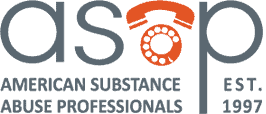By Robert Yagoda, US News
We’ve seen it before, whether on screen or in our own lives: A friend, co-worker, loved one or even an acquaintance can’t grapple with day-to-day life, and reaches for something perilously strong in liquid or powder form in order to help them cope. Fade to black.
But the relationship between mental illness and addiction – often classified as a mental illness unto itself – is much more complex than the silver screen or our own caustic thinking should have us believe. According to the National Institute on Drug Abuse, the two aren’t mutually exclusive; illness does not always trigger drug or alcohol abuse, though there are inherent links between drug use, addiction and mental illness. In fact, multiple studies show that those with mental illness are roughly twice as likely to develop a substance abuse problem. The key in understanding the triggers – and potential treatment – is weeding the fact from the myth.
Does Mental Illness Lead to Drug Abuse?
The short answer: Yes and no. Studies show that those undergoing psychological duress will often turn to substances, illegal or otherwise, to self-medicate. In fact, those diagnosed with mental disorders are twice as likely to develop drug-abuse problems, and the converse is also true. According to the National Bureau of Economic Research, those with mental illnesses consume around 38 percent of the alcohol, 44 percent of the cocaine and 40 percent of the cigarettes ingested within the United States.
While there is no finding that mental illness definitively causes addiction, there are many that have charted how often mental illness plays a role in using substance as a psychological crutch. The medical term for this is comorbidity, sometimes referred to as “dual diagnosis:” when two disorders become present simultaneously. One study by the National Institute on Alcohol Abuse and Alcoholism, “National Epidemiological Survey on Alcohol and Related Conditions,” found it prevalent in the majority of its respondents – 28.6 percent of people with alcohol addiction had at least one personality disorder, and 47.7 percent suffered from a drug-use disorder.
Multiple surveys have found direct links between mental health and substance abuse, with the most common responders being white males, and most demographics studied skewing younger. This is potentially due to the brain’s continued development while younger, which leaves it more susceptible to addiction. This leads us to our next point.
Do Mood Disorders Increase Your Vulnerability?
Unfortunately, this is more than a myth. According to the National Institute on Alcohol Abuse and Alcoholism’s Epidemiologic Catchment Area Study, participants with at least one mood disorder could increase their odds of substance abuse as much as 10 percent. Bipolar disorder is especially troubling in this arena; the same study noted that 56 percent of its participants in this arena maintained some form of abuse problem. “Overall, alcohol and drug use disorders were most strongly related to antisocial, histrionic, and dependent personality disorders,” the organization said of its findings. “Associations between obsessive–compulsive, histrionic, schizoid and antisocial personality disorders and specific alcohol and drug use disorders were significantly stronger among women than among men, whereas the association between dependent personality disorder and drug dependence was significantly greater among men than among women.”
Will Drinking or Doing Drugs Make My Mental Health Worse?
Yes. A glass of wine or a beer with a meal every so often is usually fine. But when those who suffer from mental illness think that throwing back a few will take the edge off or help quiet their mind, it’s often doing exactly the opposite – at least chemically. What’s mistaken as alleviating stress often results in added strain on the brain, which can lead to heightened depression, and the exasperation of already existing mental illness symptoms.
Are Addiction and Mental Disorders Caused by the Same Thing?
The answer to this is shades of grey: While individual cases may vary, studies show that variables such as genetic predisposition or trauma can trigger both mental illness and substance abuse. In fact, drinking or drug use and mood disorders frequently activate similar areas in the brain.
Can You Treat Both at Once?
Often, yes. A number of medications have been proven to ease psychological problems related to mental illness while also aiding the body in withdrawal; sometimes, these medications stimulate the body in similar ways as drugs or alcohol. It’s also recommended that individuals seek both therapists and substance specialists at once. Those suffering substance abuse problems may also find therapy useful, even if they weren’t aware they might need or benefit from it.
“Associations between most drug use disorders and independent mood and anxiety disorders were overwhelmingly positive and significant, strongly suggesting that treatment for a co-morbid mood or anxiety disorder should not be withheld from people with drug use disorders,” the NIAAA said in its findings. “The results also underscore the importance of ongoing development of improved treatment for people who meet criteria for two or more disorders.”
When fighting both mental illness and addiction simultaneously, many patients seek psychotherapy and cognitive behavioral therapy. These help address mental and emotional history, and can pinpoint unhealthy patterns that, in this scenario, are often linked to substance abuse. Addressing both at once can help create new behaviors to clear one’s mind, and combat psychological illness without the use – and future use – of recreational substances.
Yagoda, R. (2020). Links between addiction and mental illness: Myths vs. facts. US News. Retrieved from https://health.usnews.com/health-news/patient-advice/articles/2016-09-07/links-between-addiction-and-mental-illness-myths-vs-facts





